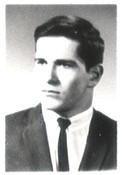Anti-vaccination headlines—like “HPV vaccine leaves another 17-year-old-girl paralyzed”—populate the Internet. That, and “Mom researches vaccines, discovers vaccination horrors, goes vaccine free,” are just a few examples of the fake science news stories shared this month on Facebook.
If you are a parent on social media, you’ve likely seen many posts just like these. Maybe you’ve even clicked on one, curious. What’s the harm, right? As a family physician with four decades of experience fighting preventable disease around the globe and a professor of anthropology, risk and decision science studying global vaccine confidence, we’ve seen the deadly harm that fraudulent science and unfounded claims can cause.
The vaccine-autism myth is one chilling example of fraudulent science. February 28, 2018 marks the 20th anniversary of an infamous article published in the prestigious medical journal, The Lancet, in which Andrew Wakefield, a former British doctor, falsely linked the MMR (measles, mumps and rubella) vaccine to autism. The paper eventually was retracted by the co-authors and the journal. Wakefield was de-licensed by medical authorities for his deceit and “callous disregard” for children in his care. It took nearly two decades for the UK immunization rates to recover. By the end, UK families had experienced more than 12,000 cases of measles, hundreds of hospitalizations — many with serious complications — and at least three deaths.Stunningly, the vaccine-autism myth still persists. It was amplified by the British media during its early years, later by celebrity endorsement and more recently by worldwide social media. Wakefield has continued his own relentless personal campaigning, moving well beyond the initial MMR vaccine scaremongering to attacking the CDC in his controversial film Vaxxed. The film was pulled before screening at the Tribeca Film Festival but found its way into independent theaters in the U.S. and Europe. Europe’s four-fold increase in measles cases and 35 measles-related deaths in 2017 — due largely to people not getting vaccinated — also reflects how Wakefield’s vaccine-autism scare can spark vaccine refusals that lead to debilitating and fatal cases of measles.














